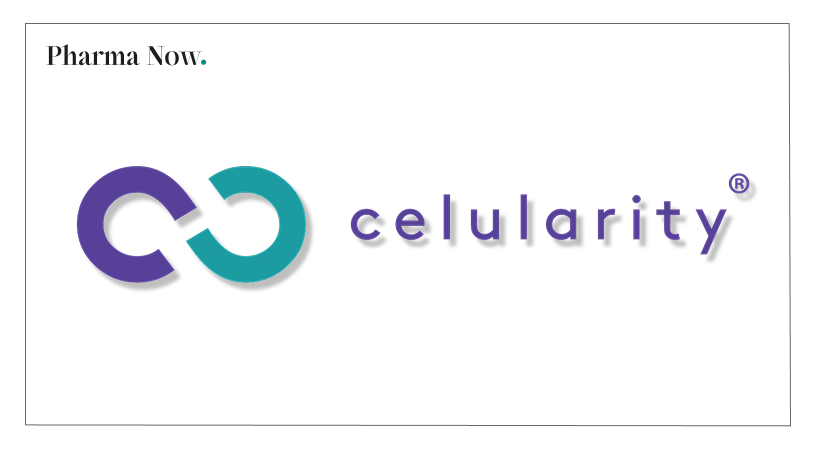Celularity’s PDA-002 Stem Cell Therapy Shows Positive Phase 2 Results In Diabetic Foot Ulcers
Celularity’s Phase 2 trial shows PDA-002 safely promotes healing in diabetic foot ulcers, including cases with peripheral artery disease.
Breaking News
Oct 15, 2025
Vaibhavi M.

Celularity Inc., a leader in regenerative and cellular medicine developing treatments for age-related and degenerative diseases, announced the publication of its Phase 2 clinical trial results in the International Wound Journal. The study, titled “Human Placenta-Derived Cells (PDA-002) in Diabetic Foot Ulcer Patients With and Without Peripheral Artery Disease,” demonstrated both safety and efficacy of PDA-002 in treating complex diabetic foot ulcers (DFU), including those complicated by peripheral artery disease (PAD). CEO Dr. Robert J. Hariri highlighted the therapy’s potential under a new Florida law that expands access to investigational stem cell therapies not yet approved by the FDA.
"The publication of our PDA-002 Phase 2 results in the International Wound Journal is a significant milestone for Celularity, and importantly, for patients battling diabetic foot ulcers complicated by peripheral artery disease, which is a patient population with a critical unmet medical need and limited treatment options," said Robert J. Hariri, M.D., Ph.D., Celularity's Chairman and CEO. "Our data show that our investigational therapy, PDA-002, a placenta-derived, mesenchymal stromal-like cell therapy, can drive meaningful wound closure rates, reduce serious complications, and do so with a favorable safety profile. We believe PDA-002 has potential to transform the future of ischemic wound care, and these findings position us for a confirmatory Phase 3 trial aimed at delivering the first FDA-approved targeted therapy in regenerative wound care for DFU/PAD patients with this urgent and unmet need. We also believe these clinical results support additional development in clinical indications where underlying microvascular disease is a contributing factor."
An estimated two million Americans develop DFUs annually, nearly half of whom also have PAD—a condition that significantly reduces blood flow and delays wound healing. Despite five existing FDA-approved DFU therapies, none specifically target DFU with PAD, which remains one of the most difficult and costly wound care challenges, with an economic burden exceeding $9 billion annually in the U.S. The condition’s poor outcomes stem from chronic ischemia, impaired angiogenesis, and persistent inflammation, underscoring the urgent need for regenerative solutions that restore tissue perfusion and accelerate wound closure.
Commenting on recent developments, Dr. Hariri said, "Celularity is actively assessing opportunities to apply these findings in jurisdictions such as Florida, where PDA-002 qualifies as a stem cell therapy under a new law authorizing use by Florida physicians in wound care, orthopedics, and pain management. Diabetes afflicts an estimated 2.1 million Floridians, according to a January 2025 Florida Diabetes Advisory Council report, which found that the percentage of adult Floridians diagnosed with diabetes grew by almost half since 2002 and is now above the national average (12.2% versus 11.6%). That percentage jumps to 25.4% among Floridians ages 65 and older, or some 1.25 million people, a fifth to a third of whom will go on to develop a DFU, for which the 5-year recurrence rate is 65%. "By unleashing promising stem cell therapies like PDA-002, Florida has given physicians a potentially important new tool for the treatment of diabetic foot ulcers, a serious condition that afflicts over a quarter of a million Floridians ages 65 and older.”
The Phase 2 study enrolled 159 adult patients across 35 U.S. clinical sites, evaluating three PDA-002 dose levels (3×10⁶, 10×10⁶, or 30×10⁶ cells) against placebo. The lowest dose (3×10⁶ cells) produced the highest healing rate in patients with PAD — 38.5% complete wound closure versus 22.6% for placebo — along with faster and more sustained healing, and fewer cases of gangrene and infection. PDA-002 was well tolerated, with no treatment-related serious adverse events, and maintained its safety profile over a two-year follow-up period. The results underscore PDA-002’s potential as a novel, durable, and regenerative therapy for patients with DFUs complicated by PAD.
